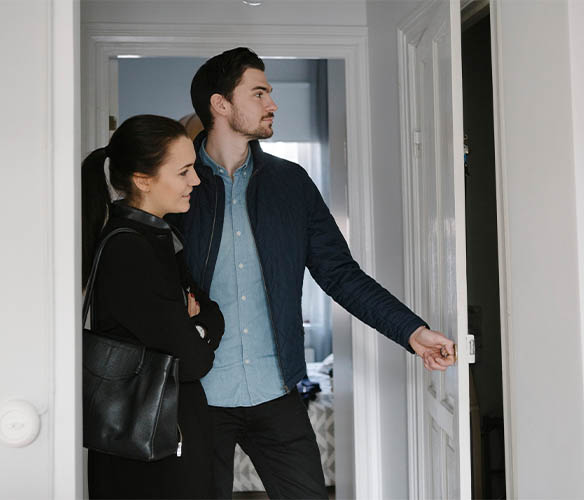There’s usually a period between contract exchange and settlement. This varies by state or territory and can be as short as 21 days or as long as six weeks - possibly even longer if the seller agrees to an extended settlement. Your solicitor, settlement agent or conveyancer will advise you of the settlement date based on the contract of sale
Exchanging contracts and settlement
The exchange of contract differs between private sales and auctions. Below are some of the key points of difference. Remember, the contract is legally binding once signed by the seller and ensures the property isn’t sold to a higher bidder.

Exchanging contracts
- Deposit due after offer has been accepted and generally at time of signing contract.
- Contract can be negotiated and conditional (e.g. subject to finance approval or building inspections).
- A cooling off period may apply (differs by state).

- Deposit due immediately after auction, at time of signing contract.
- Contract is generally unconditional.
- No cooling off period.

Checklist leading up to settlement
And then, you have the keys!
There are generally two types of settlement that happen with most property purchases:
- Settlement of the property is when the balance of the purchase price is paid to the seller. The buyer receives the keys and becomes the legal owner of the property.
- Settlement of a loan coincides with settlement of the property. It's when the lender transfers the borrowed funds to the seller or the seller's mortgage holder.
The majority of people hire a solicitor/conveyancer to handle the transfer of the property (download our conveyancing guide below for more information). Once the settlement is complete, your solicitor will need to transfer the name of the property from the vendor to yourself (the buyer). This is called the Registration of Titles, and incurs a separate fee. Then the home is officially yours and it’s time to pop the bubbly after all that hard work!

What is conveyancing?
Conveyancing refers to the process of transferring ownership of real estate from the current owner/s to a new owner/s. For more information, download our guide.

Talk to your local broker today
Request a callYou might also be interested in:
Join our newsletter to stay connected





